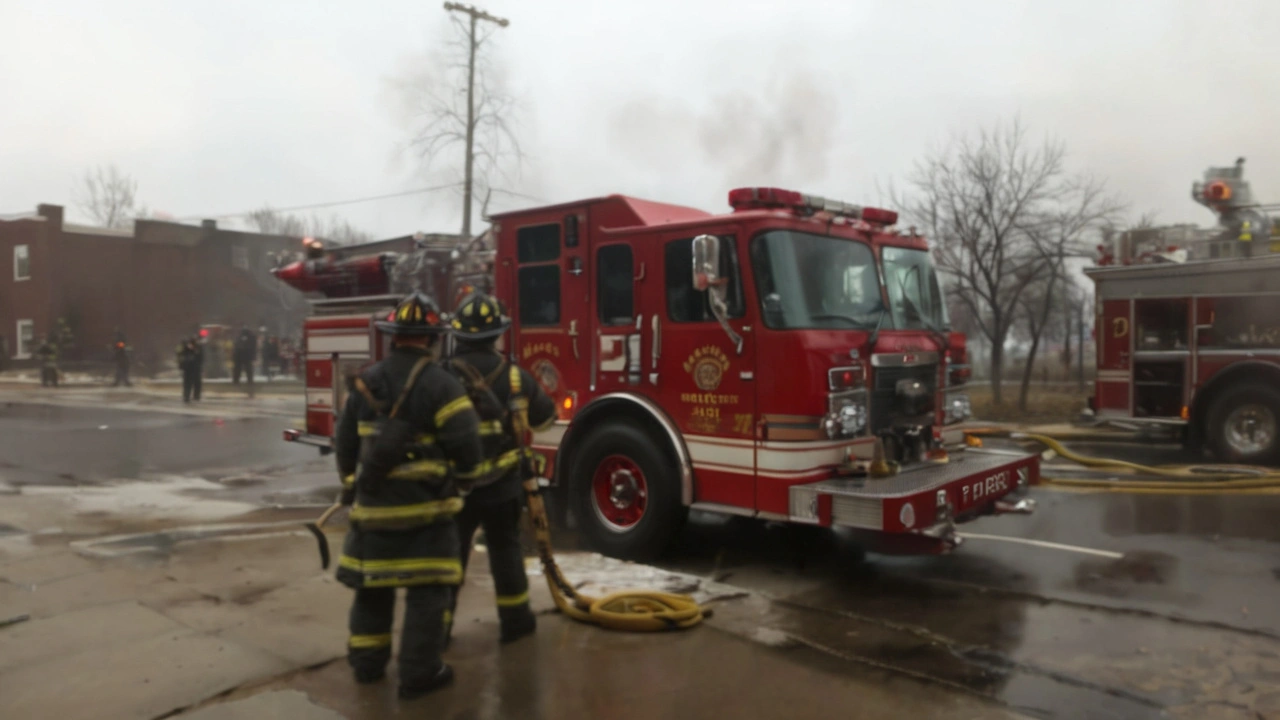If you’re in Detroit and something suddenly goes wrong — a bad burn, trouble breathing, someone collapses — the Detroit Fire Department (DFD) is one of the fastest ways to get medical help. This page gives clear, practical steps you can use right away, plus simple rules for when to call 911. Keep this handy; it can make the difference between a quick recovery and a worse outcome.
Call 911 any time someone has uncontrolled bleeding, chest pain, severe burns, difficulty breathing, sudden weakness or confusion, or is unresponsive. If you suspect a stroke use FAST: Face drooping, Arm weakness, Speech trouble — Time matters, call now. Don’t wait to see if it gets better. Emergency responders from DFD are trained to start care immediately and get the person to a hospital fast.
If the issue seems less urgent — a minor cut, a low-fever illness, or a small sprain — use urgent care or call your doctor. But if you’re unsure, choose safety: call 911 and let the dispatcher guide you.
CPR: If someone is unresponsive and not breathing normally, start chest compressions. Push hard and fast in the center of the chest at about 100–120 compressions per minute, roughly to the beat of "Stayin' Alive." If an AED is available, turn it on and follow the voice prompts. Continue until help arrives.
Severe bleeding: Press directly on the wound with a clean cloth. Keep steady pressure. If bleeding soaks through, add another layer — don’t remove the original. If possible, raise the injured area above heart level. If bleeding won’t stop, call 911 immediately.
Burns: For thermal burns, cool the area with cool (not icy) running water for 10–20 minutes. Remove rings or tight clothing near the burn before swelling starts. Cover loosely with a sterile cloth. Seek emergency care for burns on the face, hands, feet, genitals, or for large or deep burns.
Smoke inhalation and chemical exposure: If there’s heavy smoke or a chemical spill, get everyone to fresh air fast. If anyone has coughing, hoarseness, trouble breathing, or confusion, call 911. For chemical exposures, flush affected skin or eyes with water for 15–20 minutes while waiting for help.
Overdose: If you suspect an opioid overdose (very slow or no breathing, pinpoint pupils), give naloxone if you have it and call 911. If there’s no naloxone, start rescue breathing if you’re trained and continue until EMS arrives.
Small actions make a big difference: keep a list of medications and allergies by the phone, store epinephrine if someone has severe allergies, and consider naloxone if opioids are in the home. Take a local CPR/first-aid course — many Detroit Fire stations and community centers offer training. When in doubt, call 911; the Detroit Fire Department is there to help fast and keep you safe.

A troubling event in Detroit's Morningside neighborhood saw a fire engine catch fire and a ladder truck break down as firefighters responded to a house fire, exposing major issues with aging equipment and budget constraints within the city's fire department.